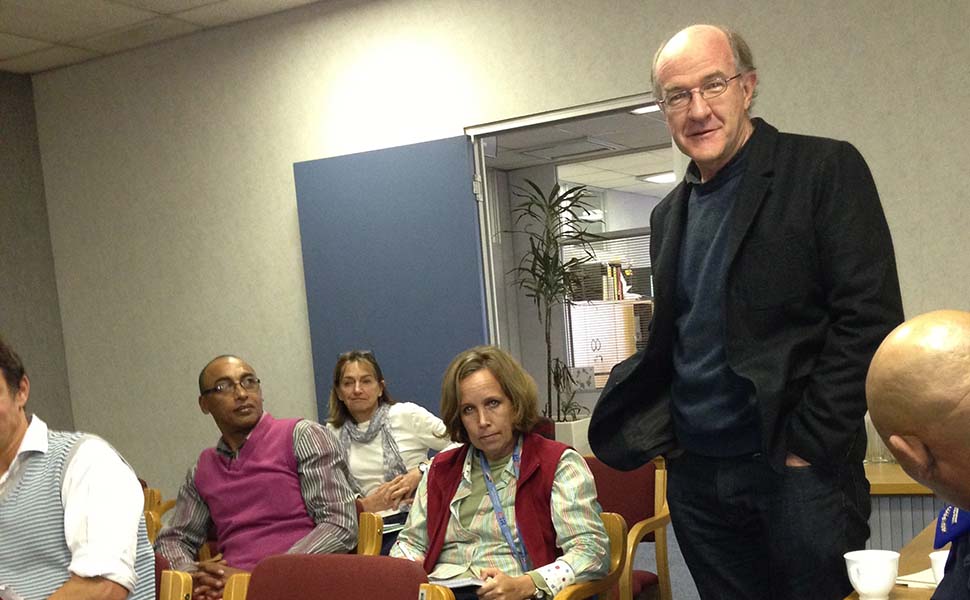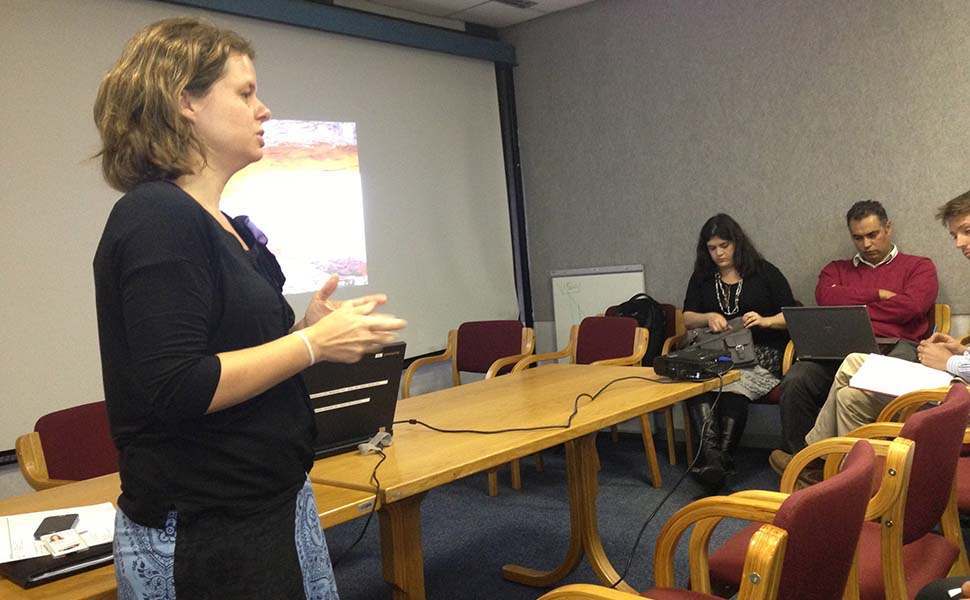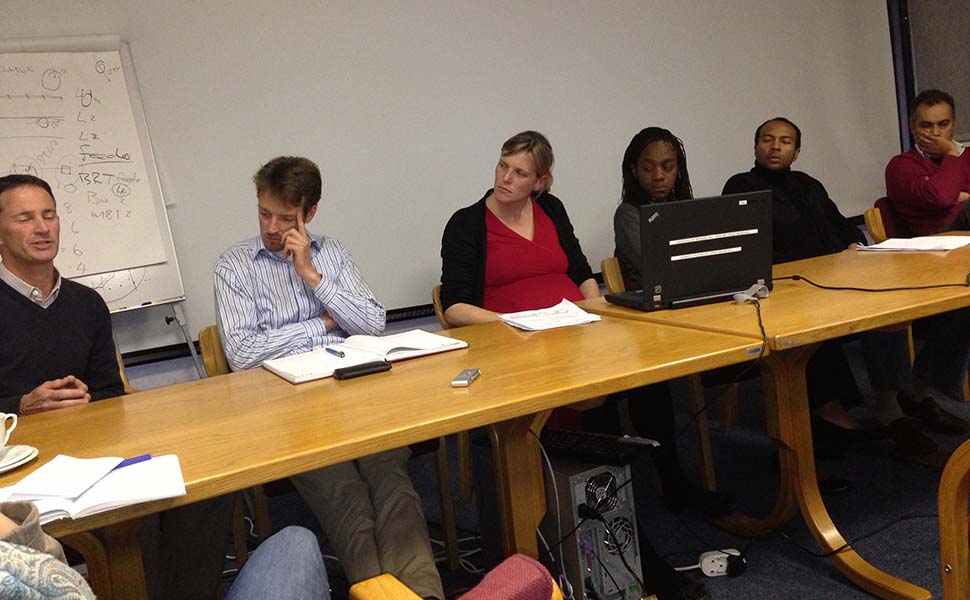
City Official Exchange Programme: End of Writing Celebration
On Thursday 20 June 2013, six city officials, participants in the Cape Town platform Knowledge Transfer Programme, presented their work to an audience of City officials and ACC academics. The programme enables city practitioners to spend two months of the year on a writing exchange at the University of Cape Town (UCT), where they partner with UCT academics to produce a journal article focussing on a particular project on which they have worked. This event, hosted at the City of Cape Town’s Civic Centre offices, celebrated the end of the first round of exchange, and heralded the opening of applications for prospective officials for the second round of the writing collaboration.
Catherine Stone, co-chair of the Cape Town LIP Knowledge Transfer Programme, welcomed the speakers and the audience, and noted this gathering as a milestone for the Mistra Urban Futures knowledge transfer programme between the City of Cape Town and the African Centre for Cities (ACC), and that the City Official Exchange Programme provided “an opportunity for staff to take time out, to write up their learnings, to write up their experience, to contribute to the production of knowledge in an academic space” says Catherine Stone. Pippin Anderson from the ACC noted the immense effort and level of negotiation that was required to allow this exchange to occur, and thanked all relevant parties, acknowledging that writing in partnership is not an easy task, but is an exciting one, in this case representing a significant shift into something new.
The seven presentations indicated the wide span of projects in which the City engages. Projects included investigating how coastal set-backs are delineated in a city-scale context; how urban growth boundaries are determined; an assessment of polycentric development in the Cape Town city-region; tracing of a community development project in Bonteheuwel; an analysis of fiscal interventions for the indigent in public transport; a review of the package of plans approach in an urban growth edge context; as well as exploring the case of a retail centre using a transaction cost framework. Interestingly, while the projects presented by the officials were very different to each other in terms of content, each one spoke to the Mistra Urban Futures focus areas of Fair, Green and Dense. Particularly in the context of the global south, these overarching themes are largely implicit in much of the work done by the City, where economic growth, social justice and environmental protection have to be juggled in officials’ everyday realities.
Each presenter reflected briefly on their experience of the programme. Each noted the challenges of immersing themselves in an academic context for short periods of time, as well as the difficulties of ‘switching off’ from their everyday work responsibilities. They all remarked, however, that the exchange programme has allowed them time to think and to focus on a single project, translating City of Cape Town projects into knowledge that is accessible to other interested parties. The programme was supported by UCT’s Centre for Higher Education, which ran a writing support programme that aimed to build capacity among the officials with regards to the requirements of academic writing and publishing. As a result of this programme, seven academic articles will be produced – a success for both institutions.

